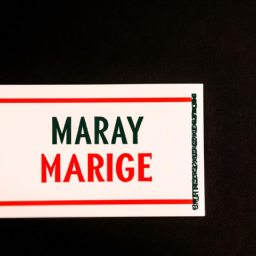The Importance of Communication in Saving My Marriage
Understanding the Role of Communication
Communication is the foundation of any successful relationship, and it plays a crucial role in saving a marriage. When couples struggle to communicate effectively, it can lead to misunderstandings, resentment, and a breakdown of trust. However, by prioritizing open and honest communication, couples can overcome challenges and strengthen their bond.
First and foremost, it is essential to recognize that communication is a two-way street. Both partners should actively participate and listen to each other’s thoughts, feelings, and concerns. Effective communication involves not only expressing oneself but also being receptive to the other person’s perspective.
Furthermore, communication is not just about words; it also encompasses non-verbal cues such as body language, facial expressions, and tone of voice. Paying attention to these subtle signals can help couples better understand each other’s emotions and intentions.
Identifying Communication Barriers
Before we delve into strategies for improving communication, it is crucial to identify and address common barriers that hinder effective communication in a marriage. These barriers can include:
1. Defensiveness: When one or both partners become defensive, it can escalate conflicts and prevent productive communication. It is important to approach discussions with an open mind and avoid becoming defensive.
2. Lack of Active Listening: Often, couples are so focused on getting their point across that they fail to truly listen to their partner. Active listening involves paying attention, asking clarifying questions, and validating the other person’s feelings.
3. Poor Timing: Choosing the right time to discuss important matters is crucial. Engaging in a serious conversation when one or both partners are tired, stressed, or distracted can hinder effective communication. Find a time when both partners are calm and receptive.
Strategies for Effective Communication
Now that we understand the importance of communication and have identified common barriers, let’s explore some strategies to enhance communication and save your marriage:
1. Create a Safe Space: Establish an environment where both partners feel comfortable expressing their thoughts and emotions without fear of judgment or criticism. This safe space encourages open and honest communication.
2. Use “I” Statements: When discussing sensitive topics or expressing concerns, use “I” statements instead of “you” statements. For example, say, “I feel hurt when…” rather than “You always make me feel…”. This helps avoid blame and fosters understanding.
3. Practice Active Listening: Show genuine interest in your partner’s perspective by actively listening. Avoid interrupting and instead, ask questions to gain clarity. Reflecting back on what your partner has said can demonstrate that you understand and value their viewpoint.
4. Non-Verbal Communication: Pay attention to your body language, facial expressions, and tone of voice. Maintain eye contact, use a calm and respectful tone, and avoid crossing your arms or displaying defensive gestures. This non-verbal communication can convey empathy and understanding.
5. Seek Professional Help: If communication challenges persist, seeking the guidance of a professional marriage counselor or therapist can be immensely helpful. They can provide unbiased insights and teach effective communication techniques tailored to your specific needs.
The Power of Communication in Saving Your Marriage
Effective communication is the key to saving your marriage. By fostering open and honest dialogue, you can address underlying issues, strengthen your emotional connection, and rebuild trust. Remember, it takes time and effort from both partners to improve communication, but the rewards are worth it.
So, start implementing these strategies today, and watch as your marriage transforms into a haven of understanding, love, and support.

Effective Strategies for Rebuilding Trust in My Marriage
Trust is the foundation of any successful marriage. When trust is broken, it can lead to a breakdown in communication, emotional distance, and even the potential end of the relationship. However, rebuilding trust is possible with dedication, effort, and a willingness to work on the issues at hand. In this article, we will explore some effective strategies for rebuilding trust in your marriage.
1. Open and Honest Communication
One of the first steps in rebuilding trust is to establish open and honest communication with your partner. This means being willing to have difficult conversations, listening to each other without judgment, and expressing your thoughts and feelings in a respectful manner. Avoiding confrontation or sweeping issues under the rug will only perpetuate the lack of trust in your relationship.
It is important to create a safe space where both partners feel comfortable sharing their concerns, fears, and insecurities. This may involve setting aside dedicated time for open communication, such as weekly check-ins or couples therapy sessions. Remember, effective communication is a two-way street, so make sure to actively listen to your partner and validate their feelings.
Building trust through communication also means being consistent and reliable in your words and actions. Follow through on your commitments, be transparent, and avoid making promises you cannot keep. Consistency will help your partner see that you are trustworthy and committed to rebuilding the trust that has been lost.
2. Rebuilding Emotional Connection
Trust is closely tied to emotional connection in a marriage. When trust is broken, emotional distance often follows. Rebuilding the emotional connection requires both partners to invest time and effort into nurturing their relationship.
Start by reconnecting on an emotional level. This can be done through activities that promote bonding, such as going on dates, sharing hobbies, or engaging in deep conversations. Show genuine interest in your partner’s life, dreams, and aspirations. By actively engaging in each other’s lives, you can rebuild the emotional intimacy that may have been lost.
Another important aspect of rebuilding trust is demonstrating empathy and understanding towards your partner. Put yourself in their shoes and try to see things from their perspective. Validate their emotions and let them know that you are there for them. Rebuilding trust requires patience and compassion, so be willing to offer support and reassurance as your partner heals.
Lastly, rebuilding emotional connection involves rebuilding physical intimacy as well. Physical affection, such as holding hands, hugging, or kissing, can help reestablish a sense of closeness and trust. However, it is important to note that physical intimacy should only be pursued when both partners feel comfortable and ready.
3. Seek Professional Help
Rebuilding trust in a marriage can be a complex and challenging process. If you find that you and your partner are struggling to make progress on your own, seeking professional help can be beneficial.
A trained therapist or counselor can provide guidance, tools, and strategies to help you navigate the difficulties you may be facing. They can facilitate open and honest communication, offer unbiased perspectives, and help you develop a plan for rebuilding trust.
Marriage counseling or couples therapy can also help you identify underlying issues that may have contributed to the breakdown of trust. By addressing these issues, you can work towards long-term solutions and prevent trust from being broken again in the future.
Remember, seeking professional help is not a sign of weakness but rather a proactive step towards strengthening your marriage. It shows your commitment to rebuilding trust and creating a healthier, more fulfilling relationship.
In conclusion, rebuilding trust in a marriage takes time, effort, and a willingness to confront and address the issues that led to its breakdown. Open and honest communication, rebuilding emotional connection, and seeking professional help are all effective strategies for rebuilding trust. By following these steps and remaining dedicated to the process, you can rebuild trust and create a stronger, more resilient marriage.

Seeking Professional Help: Marriage Counseling and Therapy
Understanding the Importance of Professional Help
When facing challenges in your marriage, seeking professional help through marriage counseling and therapy can be a crucial step towards saving your relationship. While it may seem daunting to open up about your struggles to a stranger, remember that these professionals are equipped with the knowledge and skills to guide you through the process of healing and rebuilding your marriage.
Marriage counseling and therapy provide a safe and supportive environment where both partners can express their thoughts and emotions, allowing for effective communication and problem-solving. By seeking professional help, you are taking proactive measures to address the underlying issues in your marriage and work towards a healthier and happier relationship.
Let’s explore the various aspects of seeking professional help and how it can assist in saving your marriage.
1. Finding the Right Marriage Counselor or Therapist
One of the first steps in seeking professional help is finding the right marriage counselor or therapist. It is essential to choose someone who is experienced, licensed, and specializes in couples therapy. You can start by asking for recommendations from friends, family, or your primary care physician.
When selecting a marriage counselor or therapist, consider their approach and philosophy. Some professionals may focus on cognitive-behavioral therapy, while others may lean towards emotionally-focused therapy. It is crucial to find a counselor or therapist whose approach aligns with your needs and values as a couple.
Additionally, take into account practical considerations such as location, availability, and cost. Marriage counseling and therapy are often long-term processes, so it’s essential to choose a professional you feel comfortable working with for an extended period.
2. The Initial Assessment and Goal Setting
Once you have chosen a marriage counselor or therapist, the first session will typically involve an initial assessment. This assessment aims to gather information about your relationship history, current challenges, and individual perspectives. It provides the counselor or therapist with a comprehensive understanding of your unique situation.
During the initial assessment, it is crucial to be open and honest about your feelings, concerns, and goals for therapy. This will help the professional tailor their approach and interventions to address your specific needs. Together, you and the counselor or therapist will establish clear and realistic goals for therapy.
Setting goals allows you and your partner to have a shared vision of what you want to achieve through therapy. It provides a roadmap for the counseling process and helps you stay focused and motivated along the way.
3. The Process of Marriage Counseling and Therapy
Marriage counseling and therapy typically involve regular sessions with your chosen professional. These sessions can be conducted individually, as a couple, or a combination of both, depending on your specific needs and the therapist’s recommendations.
During the sessions, the marriage counselor or therapist will employ various techniques and interventions to facilitate open and honest communication between you and your partner. They may teach you effective communication skills, help you identify and challenge negative patterns of interaction, and guide you in developing strategies to resolve conflicts.
Furthermore, marriage counseling and therapy provide a safe space for exploring deeper emotional issues that may be contributing to the challenges in your marriage. The professional will help you and your partner uncover underlying emotions, heal past wounds, and develop a stronger emotional connection.
4. Commitment, Patience, and Practice
Saving a marriage requires commitment, patience, and practice both inside and outside the therapy sessions. It is essential to attend all scheduled sessions and actively participate in the therapeutic process. Remember that change takes time, and progress may not always be linear.
Outside of therapy, it is crucial to practice the skills and strategies learned during counseling. This may involve implementing effective communication techniques, setting aside quality time for each other, and actively working towards resolving conflicts in a healthy manner.
Additionally, it is vital to be patient with yourself, your partner, and the therapeutic process. Healing and rebuilding a marriage is a journey that requires time and effort. Trust in the process and believe in the potential for positive change.
5. Recognizing When to Seek Alternative Help
While marriage counseling and therapy can be highly effective, it is essential to recognize when alternative forms of help may be necessary. In some cases, despite the best efforts of both partners and the therapist, saving the marriage may not be possible.
If you find yourself in a situation where your safety, well-being, or the well-being of your children is at risk, it may be necessary to consider separation or divorce. Additionally, if there is a persistent lack of commitment or willingness to change from one or both partners, it may be a sign that the marriage is no longer salvageable.
Remember, seeking alternative help does not signify failure. It is about prioritizing your own well-being and making choices that are in the best interest of all parties involved.
Conclusion
Seeking professional help through marriage counseling and therapy can be a transformative step towards saving your marriage. It provides a supportive environment for effective communication, problem-solving, and emotional healing. By finding the right marriage counselor or therapist, setting clear goals, actively participating in the process, and practicing new skills, you and your partner can work towards rebuilding a stronger and more fulfilling relationship. Remember, saving a marriage requires commitment, patience, and a belief in the potential for positive change.

Nurturing Emotional Intimacy to Strengthen My Marriage
Emotional intimacy is the foundation of a strong and fulfilling marriage. It is the deep connection that allows couples to understand, support, and love each other unconditionally. However, in the hustle and bustle of everyday life, it is easy for emotional intimacy to take a backseat. If you find yourself longing to strengthen the emotional bond with your spouse, here are some essential steps to help you nurture emotional intimacy and save your marriage.
1. Prioritize Quality Time Together
In today’s fast-paced world, it is crucial to set aside dedicated time for your spouse. Quality time allows you to connect on a deeper level, away from distractions and responsibilities. Make it a habit to have regular date nights or engage in shared activities that both of you enjoy. This could be going for walks, cooking together, or simply cuddling on the couch. The key is to create an environment where open communication and emotional vulnerability can thrive.
During your quality time, practice active listening. Show genuine interest in your partner’s thoughts, feelings, and experiences. Avoid interrupting or dismissing their emotions. Instead, validate their feelings and offer your support. By actively listening, you demonstrate that you value and respect your spouse, fostering emotional intimacy in the process.
Remember, quality time doesn’t necessarily have to be extravagant or expensive. It’s the intention and effort that truly matter. Even a simple gesture like preparing a surprise picnic or writing a heartfelt letter can go a long way in nurturing emotional intimacy.
2. Foster Trust and Transparency
Trust forms the bedrock of any successful marriage. Without trust, emotional intimacy cannot flourish. To build and maintain trust, it is essential to be transparent and honest with your spouse. Secrets and hidden agendas can erode trust and create distance between partners.
Practice open communication by sharing your thoughts, fears, and dreams with your spouse. Be vulnerable and encourage your partner to do the same. When conflicts arise, address them promptly and honestly. Avoid blaming or criticizing each other, and instead, focus on finding solutions together. By fostering trust and transparency, you create a safe space for emotional intimacy to thrive.
It is also crucial to honor your commitments and promises. Keeping your word demonstrates reliability and strengthens the trust between you and your spouse. Consistency in your actions and words will help nurture emotional intimacy and save your marriage.
3. Cultivate Empathy and Understanding
Empathy is the ability to understand and share the feelings of another person. Cultivating empathy in your marriage is vital to nurturing emotional intimacy. It allows you to connect with your spouse on a deeper level and fosters a sense of emotional support.
Take the time to truly understand your partner’s perspective, even if you don’t always agree. Put yourself in their shoes and try to see the situation from their point of view. This empathy will help you approach conflicts with compassion and find common ground. Avoid jumping to conclusions or making assumptions about your spouse’s thoughts or intentions.
When your partner is going through a difficult time, offer your support and reassurance. Be present and attentive, providing a safe space for them to express their emotions. Validate their feelings and let them know that you are there for them unconditionally. By cultivating empathy and understanding, you create a strong foundation for emotional intimacy to flourish.
Conclusion
Nurturing emotional intimacy is a crucial aspect of saving and strengthening your marriage. By prioritizing quality time together, fostering trust and transparency, and cultivating empathy and understanding, you can create a deep and meaningful connection with your spouse. Remember, building emotional intimacy takes time and effort from both partners. Stay committed to the process, and your marriage will reap the rewards of a strong and lasting bond.

Overcoming Common Challenges in Marriage to Save Our Relationship
Marriage is a beautiful journey filled with love, companionship, and growth. However, it is not always smooth sailing. Every relationship faces its own set of challenges, and it’s how we navigate through them that determines the strength and longevity of our marriage. In this article, we will explore five common challenges in marriage and provide you with a step-by-step guide on how to overcome them, ultimately saving your marriage and fostering a healthier relationship.
1. Communication Breakdown
Effective communication is the cornerstone of any successful marriage. However, it is also one of the most common challenges couples encounter. Misunderstandings, lack of active listening, and poor communication skills can lead to resentment, frustration, and distance between partners.
To overcome communication breakdown, start by creating a safe and non-judgmental space for open dialogue. Practice active listening, which involves fully focusing on your partner’s words, understanding their perspective, and responding empathetically. Avoid interrupting or jumping to conclusions. Additionally, be mindful of your own communication style and strive for clarity and kindness in your words.
Another helpful technique is to establish regular check-ins or “relationship meetings” where both partners can openly discuss their thoughts, feelings, and concerns. This dedicated time allows for effective problem-solving and ensures that both individuals feel heard and valued.
2. Lack of Intimacy
Intimacy is not solely about physical affection; it encompasses emotional, intellectual, and spiritual connection as well. A lack of intimacy in a marriage can lead to feelings of loneliness, disconnection, and even resentment.
To reignite intimacy, it is crucial to prioritize quality time together. Set aside dedicated moments for bonding activities such as date nights, shared hobbies, or simply engaging in deep conversations. Explore each other’s love languages and make an effort to express love and appreciation in ways that resonate with your partner.
Additionally, be open and honest about your desires and needs. Intimacy requires vulnerability, so create a safe space where both partners feel comfortable expressing their desires and exploring new ways to connect. Seek professional help if necessary, as a therapist can provide guidance and techniques to enhance intimacy.
3. Financial Struggles
Financial challenges can place significant strain on a marriage. Disagreements about money, excessive debt, or differing financial priorities can create tension and lead to marital discord.
To overcome financial struggles, start by openly discussing your financial situation and goals as a couple. Create a budget together, outlining your income, expenses, and savings objectives. This shared responsibility fosters transparency and ensures that both partners are actively involved in managing finances.
Consider seeking professional financial advice to gain insights into effective money management strategies. A financial planner can help you develop a realistic plan to tackle debt, save for the future, and align your financial goals.
Remember, financial challenges can be stressful, but by working together as a team and maintaining open communication, you can overcome them and strengthen your marriage.
4. Conflict Resolution
Conflicts are inevitable in any relationship, but how we handle them can make or break a marriage. Poor conflict resolution skills can lead to resentment, escalation of arguments, and emotional distance.
To effectively resolve conflicts, start by practicing active listening and empathy. Seek to understand your partner’s perspective without immediately defending your own. Use “I” statements to express your feelings and avoid blaming or criticizing your partner.
Take breaks when needed to cool down and reflect on the situation. This prevents arguments from spiraling out of control and allows both partners to approach the conflict with a calmer mindset. When you’re ready, come back together to find a compromise or solution that satisfies both parties.
Consider learning conflict resolution techniques through books, workshops, or couples therapy. These resources can provide valuable tools and strategies to navigate conflicts constructively and strengthen your bond.
5. Balancing Individuality and Togetherness
In a marriage, it is essential to strike a balance between maintaining individuality and nurturing the togetherness of the relationship. Many couples struggle with finding this equilibrium, leading to feelings of suffocation or a loss of personal identity.
To overcome this challenge, prioritize open and honest communication about your needs for personal space and independence. Encourage each other to pursue individual interests, hobbies, and friendships that bring fulfillment outside of the marriage.
At the same time, make a conscious effort to create shared experiences and maintain a strong emotional connection. Plan regular date nights, vacations, or activities that allow you to bond and create lasting memories together.
Remember, a healthy marriage thrives on the balance between individuality and togetherness. By respecting each other’s autonomy and nurturing the shared aspects of your relationship, you can overcome this challenge and create a harmonious partnership.
In conclusion, saving a marriage requires dedication, effort, and a willingness to confront and overcome challenges. By improving communication, reigniting intimacy, addressing financial struggles, enhancing conflict resolution skills, and balancing individuality and togetherness, you can navigate through these common obstacles and build a stronger, more fulfilling relationship. Remember, seeking professional help is always an option if you find yourselves needing additional support. Together, you can save your marriage and embark on a journey of lifelong love and happiness.
Frequently Asked Questions (FAQ)
1. How can I save my marriage?
There are several ways you can work towards saving your marriage. It is important to communicate openly with your partner, seek professional help if needed, and be willing to make compromises and changes to improve your relationship.
2. What are some common reasons marriages face difficulties?
Marriages can face difficulties due to various reasons such as lack of communication, financial issues, infidelity, lack of intimacy, differences in values or goals, and unresolved conflicts. Identifying the underlying issues can help in finding solutions.
3. Is couples therapy helpful in saving marriages?
Yes, couples therapy can be highly beneficial in saving marriages. A professional therapist can provide guidance, facilitate effective communication, and help couples work through their issues in a supportive environment.
4. How can I improve communication with my spouse?
Improving communication involves active listening, expressing your feelings and needs clearly, avoiding blame or criticism, and being open to understanding your partner’s perspective. Couples can also consider attending communication workshops or seeking professional help.
5. Can forgiveness play a role in saving a marriage?
Forgiveness is an essential aspect of repairing a damaged marriage. It involves letting go of grudges, resentments, and past mistakes. Forgiveness can help rebuild trust and create a healthier emotional environment for both partners.
6. Are there any self-help books or resources that can assist in saving marriages?
Yes, there are several self-help books and online resources available that provide guidance on saving marriages. Some popular titles include “The Seven Principles for Making Marriage Work” by John Gottman and “Hold Me Tight” by Sue Johnson.
7. How important is it to seek professional help for marital issues?
Seeking professional help for marital issues can be crucial, especially when communication has broken down or when both partners are unable to resolve conflicts on their own. A therapist can provide unbiased guidance, teach effective strategies, and help rebuild the relationship.
8. Can individual therapy benefit a struggling marriage?
Individual therapy can be beneficial for a struggling marriage, as it allows each partner to work on their personal issues and gain insights into their own behaviors and patterns. This self-awareness can contribute positively to the overall dynamics of the relationship.
9. How long does it typically take to save a marriage?
The time it takes to save a marriage varies depending on the complexity of the issues and the commitment of both partners. It can take weeks, months, or even years to rebuild trust, improve communication, and create a healthy and fulfilling relationship.
10. What if my partner is not willing to work on saving the marriage?
If your partner is unwilling to work on saving the marriage, it can be challenging. However, you can still focus on improving yourself, seeking individual therapy, and setting healthy boundaries. Ultimately, the decision to continue or end the marriage is a personal one that requires careful consideration.

About Sarah:
Sarah is a certified marriage counselor and co-founder of SaveOurVows.com. Her expertise lies in helping couples reignite the spark in their relationships and create a lasting bond built on trust and understanding. As a devoted wife and mother, Sarah draws from her personal experiences and professional training to offer valuable guidance to couples seeking to save their marriages. Her articles focus on nurturing emotional connection and fostering a supportive environment where love can thrive.
About John:
John is a relationship expert and co-founder of SaveOurVows.com. With a Master’s degree in Marriage and Family Therapy, John is passionate about helping couples navigate the challenges that come with marriage. Having experienced the highs and lows in his own relationship with Sarah, he understands the complexities of married life and believes in the power of effective communication and emotional intimacy. John’s articles offer practical tips and insights to empower couples in their journey to a stronger and more fulfilling marriage.
Together as a Team:
John and Sarah’s mission is to provide a compassionate and supportive platform for couples in need of guidance and encouragement. Through their collaborative efforts, they aim to inspire love and commitment in marriages worldwide. As a couple themselves, they embody the principles they teach, and their dedication to helping others strengthen their relationships is the driving force behind SaveOurVows.com.
Favorite Topics:
Rekindling Romance: John and Sarah believe that rekindling the romance is an essential aspect of any successful marriage. Their articles on this topic offer creative ideas and practical strategies to keep the passion alive.
Effective Communication: Communication is the foundation of a healthy relationship. John and Sarah share expert tips to improve communication between couples and resolve conflicts constructively.
Building Trust: Trust is paramount in any marriage. Through their articles, they help couples rebuild trust and create a secure and loving environment.
Join Sarah and John’s Journey:
Sarah and John invite you to join them on their journey of empowering couples to save their vows and build lasting and fulfilling marriages. Their insights and advice aim to make a positive impact on your relationship, fostering a bond that stands the test of time.






